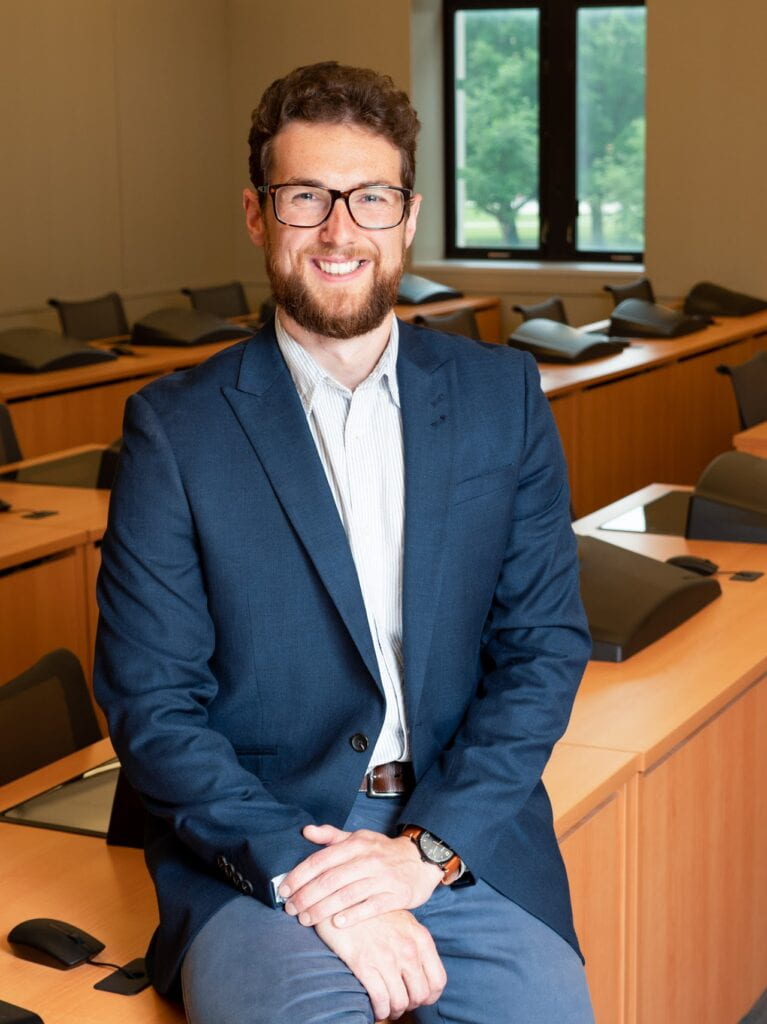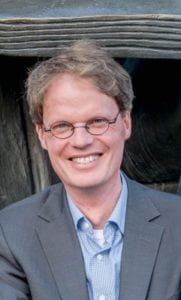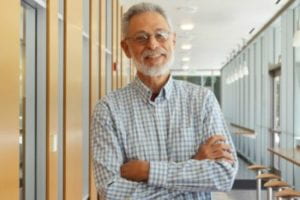Student Workshop in Experimental Economics Techniques (SWEET) Conference
Date
March 10th (Friday) 2023
Location
Kimmell Center NYU
60 Washington Square S, New York, NY 10012
Room 905/907
Schedule
Registration and Breakfast | 8:30 – 9:30 am (Room 905)
Session 1 | 9:30 – 10:50 am (Room 905)
1st Paper | 9:00 – 9:40 am
Victoria Mooers (Columbia): “Liquid Democrac0py. Two Experiments on Delegation in
Voting,” with Joseph Campbell, Alessandra Casella, Lucas de Lara, Victoria Mooers, and
Dilip Ravindran
2nd Paper | 9:45 – 10:30 am
Sam Kapon (Princeton): “Working Memory and Cooperation”, with Guillaume Frechette
and Emanuel Vespa.
Coffee and Tea Break | 10:30 – 11:00 am (Room 907)
Session 2 | 11:00 – 12:30 am (Room 905)
3rd Paper | 11:00 – 11:40 am
Eungik Lee (NYU): “The Resolution of Uncertainty in the Value and Probability
Domains,” with Kathleen Ngangoue and Andrew Schotter
4th Paper | 11:45 – 12:25 pm
Jeanna Kenney (Wharton): “Agents and the Gender Gap in Negotiations”
Lunch | 12:30 – 1:30 pm (Room 907)
Student meeting | 1:30 – 2:00 pm (Room 905)
Session 3 | 2:00 – 3:25 pm (Room 905)
5th Paper | 2:00 – 2:40 pm
Orestis Vravosinos (NYU): “Regret in games: when it is not (only) your fault”
6th Paper | 2:45 – 3:25 pm
Xiaoyue Shan TBD (Wharton): “Lowering the Playing Field: Discrimination Through Sequential Spillover Effects” with Judd B.
Kessler and Corinne Low
Break: 3:30 – 4:00 (Room. 907)
Session 4 | 4:00 – 5:25 pm (Room 905)
7th Paper | 4:00 – 4:40 pm
Jeffrey Guo (Columbia): “Doing Good in the Digital World”
8th Paper | 4:45 – 5:25 pm
Kim Sarnoff (Princeton): “Dynamic Updating About Menus”
Wine and Cheese Reception: 5:30 – 6:30 pm (Room 907)
Dinner (for speakers only) | 7:00 pm
Student Workshop in Experimental Economics Techniques (SWEET) Conference
Date
March 10th (Friday) 2023
Location
Kimmell Center NYU
60 Washington Square S, New York, NY 10012
Room 905/907
Schedule
Registration and Breakfast | 8:30 – 9:30 am (Room 905)
Session 1 | 9:30 – 10:50 am (Room 905)
1st Paper | 9:00 – 9:40 am
Victoria Mooers (Columbia): “Liquid Democrac0py. Two Experiments on Delegation in
Voting,” with Joseph Campbell, Alessandra Casella, Lucas de Lara, Victoria Mooers, and
Dilip Ravindran
2nd Paper | 9:45 – 10:30 am
Sam Kapon (Princeton): “Working Memory and Cooperation”, with Guillaume Frechette
and Emanuel Vespa.
Coffee and Tea Break | 10:30 – 11:00 am (Room 907)
Session 2 | 11:00 – 12:30 am (Room 905)
3rd Paper | 11:00 – 11:40 am
Eungik Lee (NYU): “The Resolution of Uncertainty in the Value and Probability
Domains,” with Kathleen Ngangoue and Andrew Schotter
4th Paper | 11:45 – 12:25 pm
Jeanna Kenney (Wharton): “Agents and the Gender Gap in Negotiations”
Lunch | 12:30 – 1:30 pm (Room 907)
Student meeting | 1:30 – 2:00 pm (Room 905)
Session 3 | 2:00 – 3:25 pm (Room 905)
5th Paper | 2:00 – 2:40 pm
Orestis Vravosinos (NYU): “Regret in games: when it is not (only) your fault”
6th Paper | 2:45 – 3:25 pm
Xiaoyue Shan TBD (Wharton): “Lowering the Playing Field: Discrimination Through Sequential Spillover Effects” with Judd B.
Kessler and Corinne Low
Break: 3:30 – 4:00 (Room. 907)
Session 4 | 4:00 – 5:25 pm (Room 905)
7th Paper | 4:00 – 4:40 pm
Jeffrey Guo (Columbia): “Doing Good in the Digital World”
8th Paper | 4:45 – 5:25 pm
Kim Sarnoff (Princeton): “Dynamic Updating About Menus”
Wine and Cheese Reception: 5:30 – 6:30 pm (Room 907)
Dinner (for speakers only) | 7:00 pm

 We report an experiment designed to measure how (and how well) subjects choose between biased sources of instrumentally valuable information. Subjects choose between two information sources with opposing biases in order to inform their guesses of a binary state. By varying the nature of the bias, we vary whether it is optimal to consult sources biased towards or against subjects’ prior beliefs. We find that subjects frequently choose sub-optimal information sources, and that these mistakes can be described by a handful of well-defined decision rules. Most common among these is a confirmation-seeking rule that guides subjects to systematically choose information sources that are biased towards their priors. Analysis of post-experiment survey questions suggest that subjects follow these rules intentionally and find them normatively appealing. Combined with incentivized belief data and post-experiment cognitive tests, this suggests that mistakes like confirmation-seeking are driven by fundamental errors in reasoning about the informativeness of biased information sources.
We report an experiment designed to measure how (and how well) subjects choose between biased sources of instrumentally valuable information. Subjects choose between two information sources with opposing biases in order to inform their guesses of a binary state. By varying the nature of the bias, we vary whether it is optimal to consult sources biased towards or against subjects’ prior beliefs. We find that subjects frequently choose sub-optimal information sources, and that these mistakes can be described by a handful of well-defined decision rules. Most common among these is a confirmation-seeking rule that guides subjects to systematically choose information sources that are biased towards their priors. Analysis of post-experiment survey questions suggest that subjects follow these rules intentionally and find them normatively appealing. Combined with incentivized belief data and post-experiment cognitive tests, this suggests that mistakes like confirmation-seeking are driven by fundamental errors in reasoning about the informativeness of biased information sources. We present results from laboratory experiments studying the impacts of affirmative action policies. We induce statistical discrimination in simple labor-market interactions between firms and workers. We then introduce affirmative-action policies that vary in the size and duration of a subsidy firms receive for hiring discriminated-against workers. These different affirmative-action policies have nearly the same effect and practically eliminate discriminatory hiring practices. However, once lifted, few positive effects remain and discrimination reverts to its initial levels. One exception is lengthy affirmative-action policies, which exhibit somewhat longer-lived effects. Stickiness of beliefs, which we elicit, helps explain the evolution of these outcomes.
We present results from laboratory experiments studying the impacts of affirmative action policies. We induce statistical discrimination in simple labor-market interactions between firms and workers. We then introduce affirmative-action policies that vary in the size and duration of a subsidy firms receive for hiring discriminated-against workers. These different affirmative-action policies have nearly the same effect and practically eliminate discriminatory hiring practices. However, once lifted, few positive effects remain and discrimination reverts to its initial levels. One exception is lengthy affirmative-action policies, which exhibit somewhat longer-lived effects. Stickiness of beliefs, which we elicit, helps explain the evolution of these outcomes. I am an Assistant Professor in Economics at the Yale School of Management, an affiliated faculty member of the Department of Economics, and a research staff member of the Cowles Foundation. My research interests include organizational economics, the economics of innovation, and experimental economics, particularly focusing on how firms design compensation and performance evaluation schemes to motivate workers.
I am an Assistant Professor in Economics at the Yale School of Management, an affiliated faculty member of the Department of Economics, and a research staff member of the Cowles Foundation. My research interests include organizational economics, the economics of innovation, and experimental economics, particularly focusing on how firms design compensation and performance evaluation schemes to motivate workers. Axel Ockenfels is Professor of Economics at the University of Cologne, and Speaker of the University of Cologne Excellence Center for Social and Economic Behavior. His research focuses on market design and behavioral research. It has benefitted from various DFG funding programs and from various collaborations with governments, market platforms, companies and research institutions across Europe and the US.
Axel Ockenfels is Professor of Economics at the University of Cologne, and Speaker of the University of Cologne Excellence Center for Social and Economic Behavior. His research focuses on market design and behavioral research. It has benefitted from various DFG funding programs and from various collaborations with governments, market platforms, companies and research institutions across Europe and the US. Daniel Friedman joined the UCSC Economics faculty in 1985 after teaching at UCLA and UC Berkeley. He has broad research interests in applied economic theory, with emphasis on learning and evolution, laboratory experiments, and financial markets. The coauthor of five academic books, fourteen NSF grants, and roughly 100 research articles, he currently is studying a) financial market design, b) strategic behavior in real time, and c) evolutionary dynamics of continuous strategies or traits.
Daniel Friedman joined the UCSC Economics faculty in 1985 after teaching at UCLA and UC Berkeley. He has broad research interests in applied economic theory, with emphasis on learning and evolution, laboratory experiments, and financial markets. The coauthor of five academic books, fourteen NSF grants, and roughly 100 research articles, he currently is studying a) financial market design, b) strategic behavior in real time, and c) evolutionary dynamics of continuous strategies or traits. In a large randomized controlled trial, we test the hypothesis that incentives for physical activity can improve academic performance. We found strong support for this hypothesis: University students who were incentivized to go to the gym had a significant improvement in academic performance, by, on average, 0.15 standard deviations compared to a control group that did not receive any incentives. The success of this indirect incentive for academic performance emphasizes the importance of non-cognitive skills in achieving academic goals. Students who were incentivized to exercise report improved self-control and a healthier life-style. Overall, the study demonstrates that incentivizing exercise can be an important tool in improving educational achievements.
In a large randomized controlled trial, we test the hypothesis that incentives for physical activity can improve academic performance. We found strong support for this hypothesis: University students who were incentivized to go to the gym had a significant improvement in academic performance, by, on average, 0.15 standard deviations compared to a control group that did not receive any incentives. The success of this indirect incentive for academic performance emphasizes the importance of non-cognitive skills in achieving academic goals. Students who were incentivized to exercise report improved self-control and a healthier life-style. Overall, the study demonstrates that incentivizing exercise can be an important tool in improving educational achievements. Natalie Lee is a Ph.D. candidate in the department of Economics at New York University. She received her B.A. from the University of British Columbia, Canada.
Natalie Lee is a Ph.D. candidate in the department of Economics at New York University. She received her B.A. from the University of British Columbia, Canada.